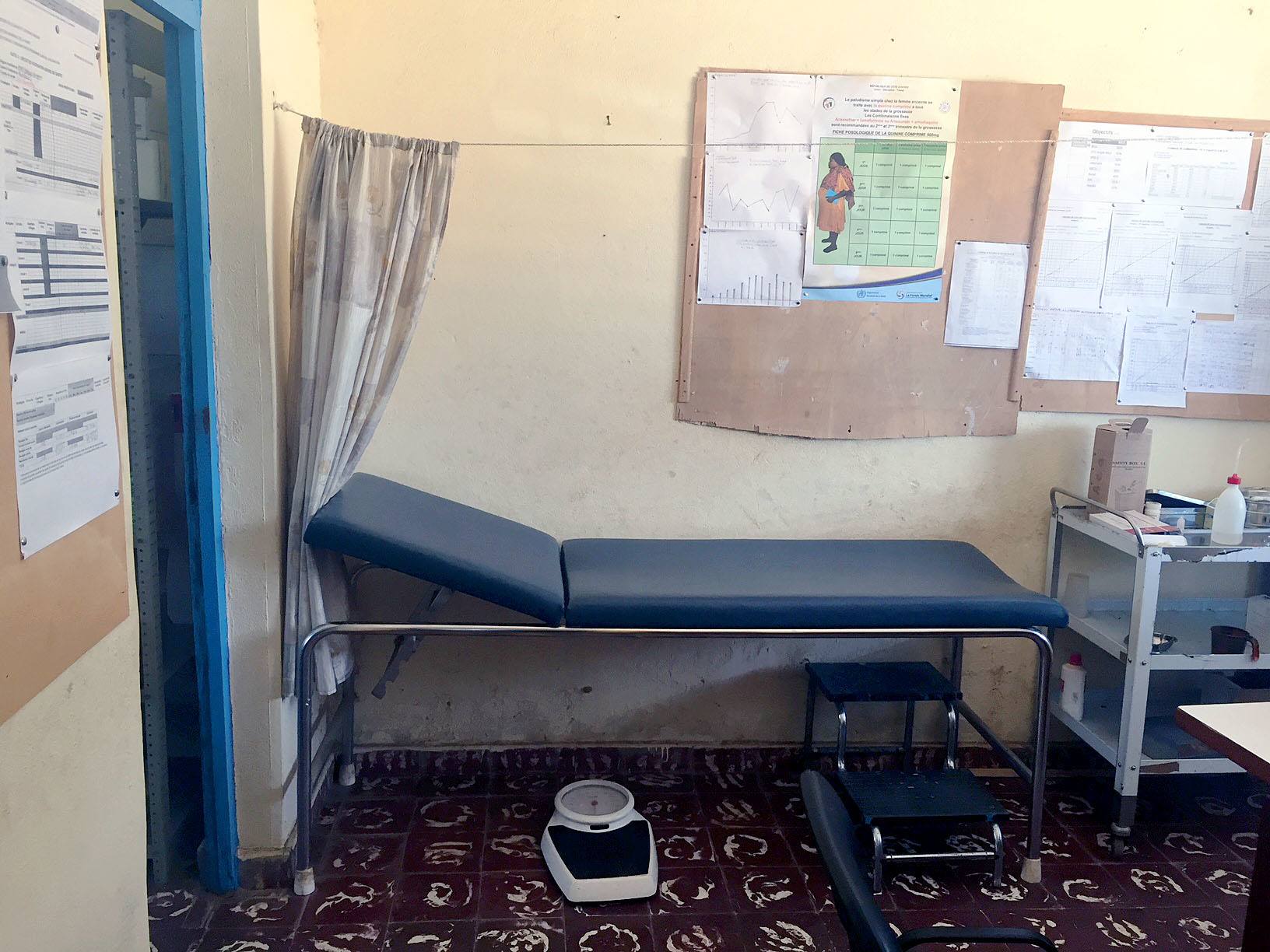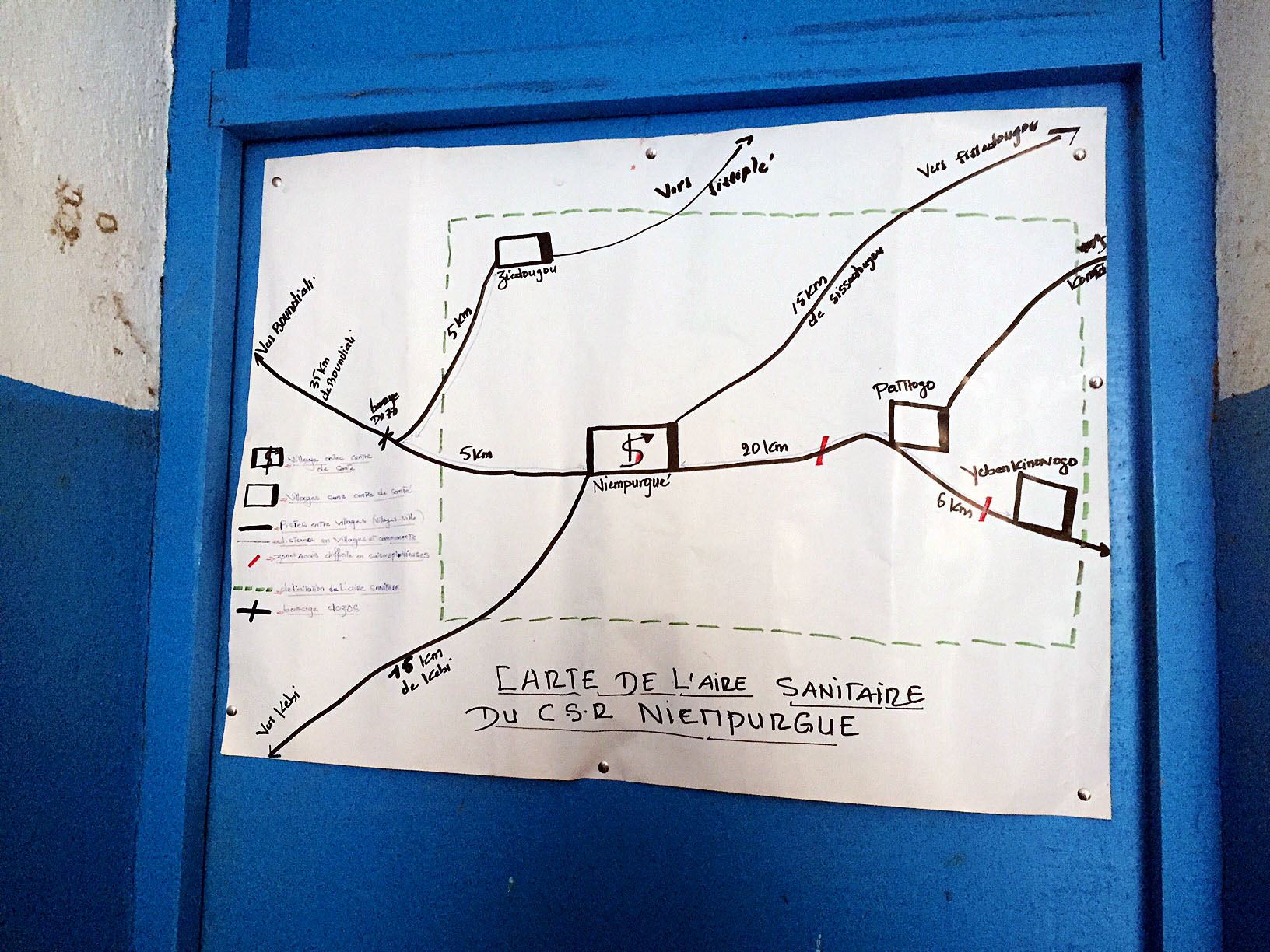As a nurse with a clinic in northern Côte d’Ivoire, Vehi Pierre has his hands full helping patients. So when his supervisors signed him up for an e-learning course on HIV screening, he admits, “it frustrated us a little.” Vehi was occupied with one of the country’s top public health problems: HIV. Côte d’Ivoire is among the two dozen countries with the highest rates of HIV infection. “I have to say it was difficult, when treating a patient, it was difficult to get the patient to accept to be screened.” The training, provided by Aga Khan Foundation through the Telemedicine in Côte d’Ivoire project, offered Vehi a new approach.
A Difficult Diagnosis to Discuss
In Côte d’Ivoire, around a half million adults and children are living with HIV, but getting them to talk about it isn’t easy. Vehi found it difficult to convince clinic patients they should get screened.
“At the beginning, when I suggested we do the screenings, everyone stayed away from the center, they said, ‘No, when you go there the nurse will look to see if you have AIDS.’ Even after training, patients refused to come.”
Even Vehi’s family had resisted screening.

This story shows how the training provided Vehi with knowledge that there’s a way forward. He had himself screened for HIV and then showed others how that knowledge was power. Since the AKF training, his screening and treatment rates in the community have gone way up.
Aiming for Zero HIV Through Better Screening
Vehi says the project goal is to “reduce the cases of HIV to 0% and to give those who are affected by HIV medications that allow them to live a long time.”
“I didn’t know much about HIV. With AKF’s training, we learned a lot of things. In addition, we didn’t know how to treat HIV. We learned how to differentiate between different types of treatments and medications thanks to the training from AKF.”
“We are helping people better understand that no, it is not the end of the world, but we must know our status to live better.”
“Thanks to the training, I can now treat more patients and treat them better. Before I only did 200 to 240 screenings, but now I do 300-400 screenings.” That larger scope for screening patients for HIV comes from the training, Vehi said.
“Before we only used to screen the cases that looks like they might be HIV positive. But when we did that, the patients tended to become frustrated and they stopped coming to the medical center. After the training we now screen everyone, and that has helped.”
Telemedicine for Improved Healthcare
Looking to the future, the Aga Khan Foundation seeks to leverage the existing telemedicine platform to continue providing medical professionals with the training and guidance they need to succeed.

Vehi says the training he received already “better enabled me to advise the people who will be in front of me. So it’s a huge benefit for me to have done this training. The consultations, screenings, discussions on malnutrition, all this has improved my education and increased my knowledge.”
As of October 2017, the project has screened almost 2,500 people through campaigns at various clinic sites in the region, and has improved the clinical capacities of more than 100 health professionals.
Click here for the French version of this blog post.
Juliet Harris is a Programs Associate with the Aga Khan Foundation. The Telemedicine in Côte d’Ivoire project is funded by the U.S. Agency for International Development in West Africa.